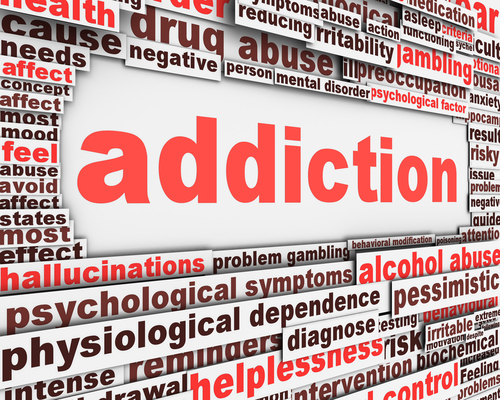This page is under construction...
Personal Issues

Addiction
We are habitual beings. Repetitions of behaviors that bring pleasure and efficiencies in our daily function are usual human experience. But at times some substance and behavioural addiction could dominate our lives to a point where it begins to adversely affect our daily functioning and social life.
- What is Addiction?
There are broadly two types of addictions, substance and behavioural. Substance addiction includes alcohol, nicotine, legal and illegal drugs or narcotics. Behavioural addictions include gambling, porn and sex, internet gaming and social media addictions, and other habitual behaviors that adversely affect your daily function or are harmful.
- What are the signs and symptoms?
When some of the following signs and symptoms begin to be noticeable, help should be sought before the very behaviour or substance use becomes entrenched. The substance or behaviour becomes dominant method of lifting your mood. And, that the increased use or behaviour is necessary to maintain the mood or the feeling. The thought of the last or next occurrence dominates your thinking time to the point where it begin to adversely affect your family and social life, work, study and leisure time as well as your sleep. You no longer feel you are in control of yourself over the occurrence. You feel restless, moody and irritable without it. You begin to schedule your life around it.
- What can be done about it?
In order for one to understand addiction, one needs to identify the emotional payoffs that the addictive behaviour brings. Addictive behaviour for most part is that it helps us manage our emotional discomfort. Therefore, in order to manage, reduce and master the addictive behaviour we must firstly identify the triggers and sources for our discomfort, and ultimately replace the addiction with healthy behavioural and emotional strategies.
Anger Management
Anger is one of our legitimate and healthy spectrums of emotions that serve us well. But, if anger becomes our dominant and uncontrollable response to any slight emotional arousal, stress or perceived danger, you might be in need of managing your anger.
- What is Anger Management?
In anger management we help you understand your anger, instill you with skills to recognize anger signs, manage and control your anger as well as healthy ways to express your anger in constructive and productive manner. We also teach you healthy and effective communication skills to affectively express your needs while recognizing and upholding that of others.
- What are the signs and symptoms?
When our anger begins to be frequent and increasing in magnitude of explosion, then some of the following signs should be observed. Increasing heart rate, breathing and sweating, tightening of muscles around the jaw and the arms, reddening of face and heat in the face, increase head pressure, frequent fight response
- What can be done about it?
When these signs begins to show with increasing frequency some techniques can be put in place immediately such as, taking time out, stepping away, slow breathing exercise, talk yourself down, applying relaxation exercise. Ultimately your regular intellectual/logical/belief that triggers needs to be readdressed. This is where talking to a skilled therapist or a counsellor will help you reflect yourself in the situation and guide you to a point where anger becomes one of your full spectrum of helpful emotions to draw on rather than a dominant and uncontrollable one.
Anxiety
Being anxious or fearful is our natural and appropriate response to danger. It is part of our innate survival instinct. For some people and for some of the times in their life, excessive fear, worry and anxiousness affect their daily functioning. At times such fear and anxiety happens for no apparent cause and at unexpected, irregular times. It is said that some 14% of Australian adults suffer some form of anxiety disorder in each given year.
- What is Anxiety?
Anxiety disorder comes in various forms; separation anxiety, phobias of various kinds, social anxiety, generalized anxiety disorder, panic disorder and others. When you feel fearful or anxious to a point where it begins affect your daily functioning, some intervention or help is needed.
- What are the signs and symptoms?
Depending on the specific form of anxiety disorder variety of different symptoms and signs may be experienced. Some of the signs and symptoms are; restlessness and irritability, insomnia, sudden heart palpitations and shortness of breath, feeling of impending disaster, repeated need to resort to ritualistic behaviour to avoid panic etc..
- What can be done about it?
For medical diagnosis and pharmaceutical intervention GPs are the best place to begin. Psychologists are able to assess and diagnose and also to provide Cognitive Behavioural Therapy (CBT) to counter the effects of symptoms of anxiety. At Counselling Interactive anxiety is addressed through verity of therapeutic approaches such as Person Centred Therapy, Psychodynamic Psychotherapy, Existential (Phenomenological) Psychotherapy, Cognitive Behavioural Therapy, Family Systems Therapy or Emotion Focused Couple Therapy and others.
Depression and other mood disorders
As modern society becomes increasingly enlightened with psychological experiences, one of the most prominent words that are on the lips is the word, ‘depression’. Unfortunately, it is regularly misused to describe our sadness, unhappiness or when sad or bad things happen in our lives.
- What is depression?
Depression is one of the most difficult and debilitating conditions that one can experience in life. Depression can appear in different forms; major depressive disorder, dysthymia, bipolar disorder, psychotic depression, melancholia, seasonal affective disorder and postnatal depression. Depression is the most highly prevalent mental conditions in our society.
- What are the signs and symptoms?
Depression is a persistent mood disorder that lasts a long time, draining the sufferer of pleasure, interest, motivation, hope, and detrimentally affecting sleep (insomnia or hypersomnia). It dominates the sufferer with feeling of worthlessness, guilt and even thoughts of death.
- What can be done about it?
There are sufficient evidences that shows managing and overcoming depression is possible in a multifaceted approaches. GPs can medically diagnose and prescribe appropriate medications. And, there are strong evidence that psychological therapy work well with most of depressive disorders.
Eating Disorders
If you are having persistent eating or eating related disturbances resulting in significant physical or psychological functioning, then there may be a cause to see someone to talk about, identify and treat the condition.
- What are known Eating Disorders?
There are six recognized eating related disorders. They are PICA, Rumination Disorder, Avoidant/Restrictive Food Intake Disorder, Anorexia Nervosa, Bulimia Nervosa, Binge-Eating Disorder
- What are the signs and symptoms?
PICA is a condition where nonnutritive, nonfood substance is ingested for a prolonged period where the ingested food is not part of socially for culturally normal practice. Rumination Disorder is a condition where one repeatedly regurgitates food on a prolonged period without known medical condition. Avoidant/Restrictive Food Intake Disorder is a condition where one persistently avoid/restrict food resulting in significant weight loss and nutritional deficiency which markedly affects one’s psychological and social functioning. Anorexia Nervosa is a condition where energy intake is severely restricted by the sufferer resulting in significant body weight loss relative to the developmental stage, age and gender. This condition is accompanied with intense fear of gaining weight, undue negative self-evaluation of body shape and persistent refusal of recognition of danger of low weight. It is also accompanied by behavioral pattern that promotes weight loss and interferes with any activity towards weight gain. Bulimia Nervosa is characterized by repeated binge eating episodes. That is eating inordinate quantity in an indiscriminant period of time with a sense of lack of control over eating during the episode. These episodes are accompanied by inappropriate compensatory behaviors such as self-induced vomiting, misuse of laxatives and other medications. Binge-Eating Disorder this is similar to bulimia nervosa except without compensatory behaviors.
- What can be done about it?
There are variety of evidence-based treatments that have been found effective for eating related disorders. It is important to note that a treatment will work better with some people while others will work better with others. Psychotherapy focuses on thoughts, thought patterns, beliefs, emotions, motivations, behaviors and relationships. Family approaches works best for children, adolescents and young people and focuses on understanding family dynamics, educating the family, strengthening family relationships and improving family dynamics. Nutritional management approach in conjunction with GP consultation would focus on the designing eating regime to help the sufferer regain healthy nutritional intake. This can be assisted at times by medications from GPs to control depression, anxiety and other psychological conditions while controlling the body weight restoration.
Mental Health Issues
Obsessive Compulsive Disorders
Phobias
Psychosis
Post Traumatic Stress Disorders
Self-Esteem
Self Esteem has been known to develop during the early childhood. The developed self-esteem remains relatively stable for the rest of one’s lifetime unless an intervention takes place to alter the level of self-esteem. For adults with low self-esteem it becomes one of the most persistent factors that adversely influence one’s life experiences and performance. Therefore, development of healthy crucial for sound psychological and social life of an individual.
Self-Harm & Suicide
Stress
Stress is our normal response to challenges and dangers in our lives. It is our body’s, mind’s and behavioural responses to stressors. But at times when we experience stress beyond our ability to cope with, it can detrimentally affect our health, relationships and daily functioning.
- What is stress?
Eustress is a type of stress that helps us deal with challenges. It improves our motivation and performances. But when the stress becomes ACUTE beyond one’s capacity to cope with or CHRONIC with ongoing stressors, the deleterious affect of stress becomes negative to our health. Some of main causes of stress are; major life events (both positive and negative), routine daily stresses that are on going and acute traumatic stresses. These may come from personal financial, health, work, relational and others.
- What are the signs and symptoms?
Stress can be caused by actual situation or our psychological interpretation of the situation. The symptoms can manifest themselves in bodily, psychological or behavioral signs. Some of physical symptoms of stress are persistent headache, constant muscle tension, sleep disturbance, fatigue, high blood pressure, weakened immune system and the like. Some of the psychological symptoms are persistent thought of one issue, worry, anxiety, irritability, anger, fear of loss of control, constant surveillance etc. The symptom can manifest itself behaviorally, such as overeating, abuse of substance, relationship troubles, tiredness etc.
- What can be done about it?
Various strategies could be employed to manage stress. Managing stress begins with monitoring, assessing and choosing appropriate tools. At times implementing changes in life to change to stressors may be in order. Other times regular exercise, practicing relaxation techniques or just having a good times with friends and family may do the trick. But when these common sense methods cannot be managed by yourself, then talking to a counsellor may bring about necessary changes more effectively.
Personal Development
Life Skills Development
Adaptive Skills Development
Personal Development

Suffering & Enduring

Enduring Through Suffering
Symptom Amelioration
Grief, Bereavement & Loss
Overcoming Behavioural & Substance Dependence
Domestic Violence
Childhood Sexual Abuse
Childhood Neglect
Childhood Physical/Emotional Abuse
Family Violence
Racism
Violence & Abuse

Relationship Issues

Enhancing Relationships
Establishing Relationships
Rebuilding After Relationship Ending
Couple Counselling
Being in a relationship with someone who loves and cares for you is one of the most exhilarating, wonderful and precious element of our lives. It provides us with affirmation and validation of who we are, what we do, what we need and what we hope for. The loving relationship invigorates our existence. Establishing and maintaining good relationship requires great deal of effort, investment, commitment and constant attention. Yet all most all relationships hit rocky times as it develops from an infatuation stage to mature, long lasting one. Such rocky times can be seen as a detriment to our relationship or an opportunity to fine tune and grow towards deepening relationship.
Pre-Marriage Counselling
As love relationships deepen couples consider life-long commitment of marriage. Marriage is a wonderful, life-giving entity that affirms and validates our lives, and a source of joy, enrichment, purpose and fulfillment. Marriage is coming together and bonding of two individuals with different upbringing, culture, habits, personality make ups, sociability, hopes and aspirations, religion among others. In order to make this most precious union of marriage to succeed these differences needs to be identified, recognized, accepted and some of the major differences resolved. Being equipped with communication skills, bonding skills and “other-person-centeredness” skills are crucial in ensuring that the couple’s union becomes continuing source of joy, wonderment and growth.
Marital Issues
Loving marriage relationship is one of the most wonderful things that a living human being can experience. Also, two people living together in marital commitment is one of the most challenging things one faces in life. There are myriads of potential causes that can affect the marital relationships. Experiences of life from family, work, social life and their changes, personal differences and changing experiences of each member of the marital couple and challenges that the couple face together wading through the storms and stress of life. From time to time a third person perspective and skilled helper can help marital couples through these challenging times.
Marital Breakdowns
When the relationship with the most important person in our lives ends, we experience something akin to a trauma of loss through death of a loved one. Emotional experiences such as denial, fear, loneliness, guilt, rejection, grief, anger self-pity etc. It is a time of great sadness and pain. Much embracing, self-care, affirmation and validation is needed in the process of healing and recovery. It is a time to reflect, identify issues, re-adjust, and regain strength and balance. It can also be a great opportunity to learn, enrich, transition, grow and enjoy the freedom to be one self.
Re-Marriage
Remarriage after the end of one marriage is a wonderful restorative and rebuilding of one’s life with a new partner in marriage. But, in some cases people enter into a new marriage before having worked through the trauma and grief of the end of one marriage, carrying the same issues into a new marriage. Talking about the issues and working through them in preparation for the new marriage will help build stronger and enriching new marriage.
Marriage

Family

Family Maintenance
Family Formation
Family Separation
Learning to Parent
Parenting & Separation
Child Protection Issues
Parenting Skills
Grand Parenting
Succession Planing For Care of Adult Child
Parenting

Children & Adolescents

Childhood Behavioural & Psychological Issues
Early Childhood Education Issues
Schooling Issues
ADHD
Bullying
Bullying is one of the most insidious scourge that deeply affects child’s experience of the world. Bullying has been found as cause of suicides among children and young people. More and more research findings have supported the need for early intervention and systemic changes in school, cyber space and at home.
Adolescent Issues
Adolescence is considered one of the most stressful stage in one’s life. It’s a time of transition from a child to an adult. Many teenagers find talking about their problem confronting and difficult as they struggle to find means to talk about their experiences. Using innovative methods such as image cards, artistic expressions, creative writing and music we find appropriate ways to help adolescents and young people express their thoughts, feelings and experiences.
Adolescent Self Esteem
Adolescence is considered one of the most stressful stage in one’s life. It’s a time of transition from a child to an adult. Many teenagers find talking about their problem confronting and difficult as they struggle to find means to talk about their experiences. Using innovative methods such as image cards, artistic expressions, creative writing and music we find appropriate ways to help adolescents and young people express their thoughts, feelings and experiences.
Dealing With Difficult Parents
Forming & Maintaining Friendships
Internet & Social Media Use
Separation of Parents
Step Parents & Step Siblings
Substance Addictions
Behavioural Addictions
Addictions & Dependence

